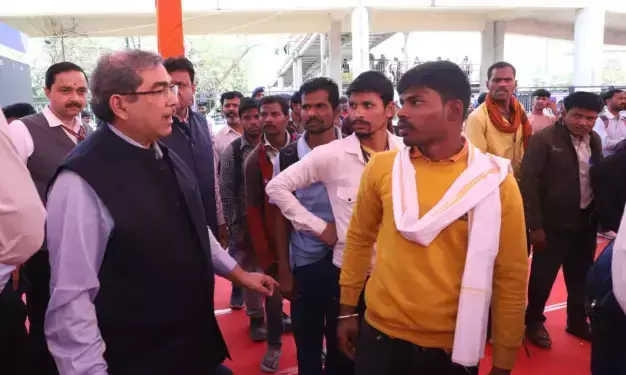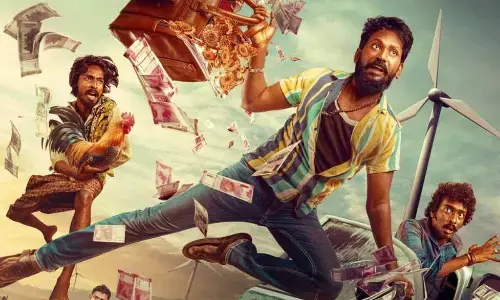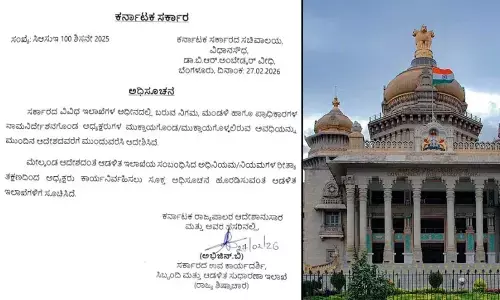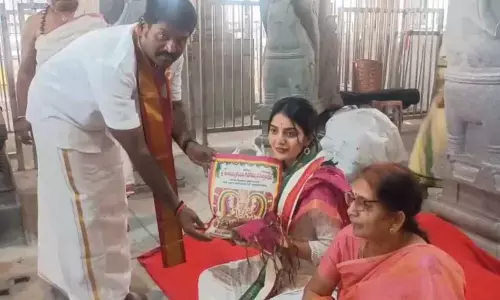Clampdown defies civil liberty
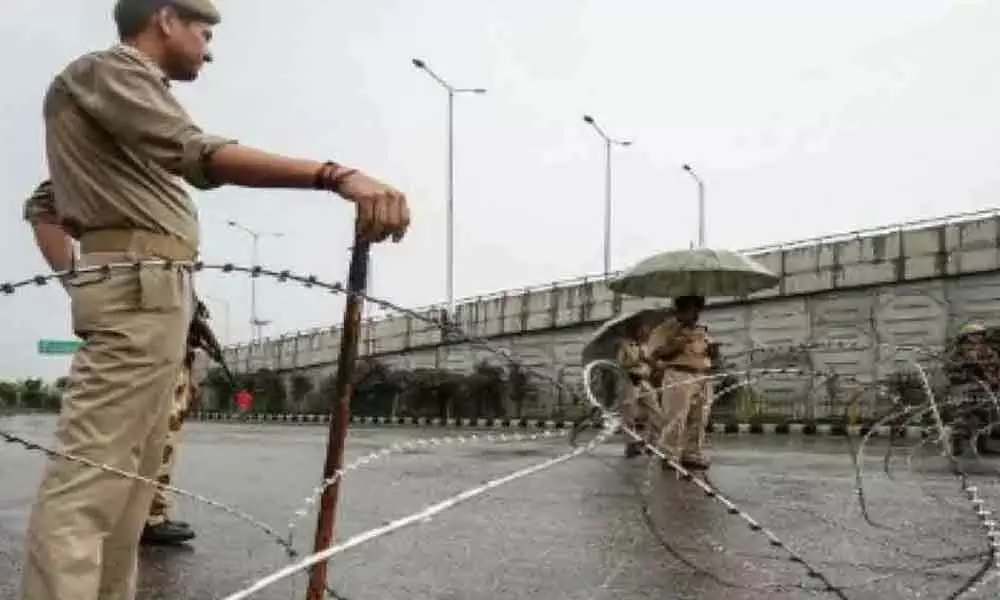 Clampdown defies civil liberty
Clampdown defies civil libertyThe categories discussed earlier were, largely, formal and structured forms of associations. There are other forms of assembly such as the freedom movement led by Gandhi or the Azad Hind Fauj of Subhash Chandra Bose. Both were, however, regarded as illegal at that time. The Mafia or the Ku Klux Klan were also assemblies.
So were the movements led by Jai Prakash Narayan opposing the imposition of Emergency in 1975, and the recent anti-corruption movement launched by Anna Hazare. All these were variously regarded as legal or otherwise by ruling regimes at the appropriate time, depending on their perception.
However, organisations, like Al-Qaeda, or Jaish-e-Mohammad, which are essentially terrorist organisations, can hardly be labelled as assemblies. Neither can Naxalite movement in some parts of India, nor the uprisals in the northeastern States.
The civil war in the United States for liberation from the British rule, the French Revolution and the struggles for separate States or Punjab and Telangana were also forms of assembly as they were inspired by shared objectives and philosophies.
The constitutional Right to Freedom of Speech or Association is conditional to maintaining public interest and common good along with transparency and accountability.
Clause (2) of Article 19 of the Indian Constitution enables enactment of laws to impose certain reasonable restrictions on free speech under many heads including: security of the State, friendly relations with foreign States, and public order, decency and morality.
An innovative way of suppressing speech and expression without invoking any laws is being alleged to be done recently. The government functionaries have been accused of using arm-twisting methods to "lean on" TV cable operators not to telecast certain news channels which are perceived not to be favourable to the government.
Public organisations like the State Bank of India, and the Life Insurance Corporation of India are creatures of a legal regime built-in checks and balances, and subject to external audit and supervision of regulatory authorities such as the Reserve Bank of India, Securities and Exchange Board of India, Insurance Regulatory and Development Authority, Telecom Regulatory Authority of India etc. They are mandated to follow norms of "good governance" and to comply with the imperatives of transparency and accountability.
Similar is the case with private institutions, except that they work under the general law, and generally work for a profit. It is said that 'small is beautiful'. Even in organisations, it is much easier to put in place environments that enable and support transparency and accountability, in the relatively smaller sized bodies.
No doubt the larger ones such as corporate giants and MNCs may be subjected to greater external controls of a more rigourous nature. And the smaller ones, especially those without legal identity, may have no statutory regime to comply with. Still, experience has shown that the ease with which large-scale frauds can take place, as well as the ability to escape punishment, appear to be more prevalent in the largest bodies.
Therefore, the role, both in terms of vigilance and of enforcement, of the legal regime, that the government has to play, is much more in the case of large corporate bodies. Otherwise the individual shareholder will, as he has done many times in the past, remain a helpless bystander.
A third category comprises loosely formed groups (such as Self-Help Groups and Farmers Producer Organisations), without a distinct cooperate identity. The lack of formal legal identity precludes institution of legal proceedings, by them or against them.
They are, however, the most preferred institutional options for activities, such as thrift among rural women handicrafts, and the garment – making etc. Therefore, institutions such as RBI have introduced special dispensations to include such groups mandate. For instance, SHGs are eligible for accessing Bank credit.
There is also another type of organisations, comprising non-governmental organisations (NGO)s or Community Based Organsations (CBO)s, which usually espouse socio-economic causes or charity as objectives. They can be either formal legal entities (like the Ramakrishna Math or Anjuman-e-Taraqqi-e-Urdu) or loosely formed groups (such as Resident Welfare Associations in multi-storied apartments).
The benign and well-meaning efforts of non-governmental organisations and civil society organisations often provide the crucial last link between governmental intentions and grassroots level realisation.
The activities of several NGOs, have, however, come under the scanner following undesirable practices, resulting in the government banning receipt of foreign donations by them and weeding out the errant organisations.
No doubt, many societies such as Gandhi's Sevagram in Wardha, and international organisations such as the Red Cross Society and Mother Theresa's Missionaries of Charity have rendered commendable service to society.
The recent spurt in social media such as Facebook, Google, YouTube, Twitter, WhatsApp etc., is no doubt a welcome development, facilitating, as it has, faster and cheaper communication. Unfortunately, the platforms have also proved to be highly vulnerable to criminal misuse, posing a threat to the rights of secrecy and safety.
Following judicial intervention, draft rules have now been framed for regulating their activities and mandating them to cooperate with the police in tracking down cyber-crimes. The question whether technology is killing creativity, especially among the youth, is also a growing concern.
Many factors contribute to the fulfilment of the desire of human beings for a life of fulfilment and satisfaction. Physical fitness, mental alertness, emotional stability, the joy of learning, the pleasure of participating in games and sports, the thrill of adventure and exploration, entertainment that is offered by the fine arts such as music and dance – all have a role to play in the process.
The pleasure of enjoyment is sharpened when it is experienced in a group with like-minded persons. Society and governments need to do all they can, to promote and support such activities and associations with subject, of course, to the need to ensure that no pain, or suffering is caused as a result, to the others' freedom.
It is being increasingly realised that the society at large, the forms of governance chosen by countries, and even the governments in power have a substantial role to play in creating an environment that enables and supports the pursuit of happiness by people.
In fact, an international system has been developed by the United Nations Sustainable Development Solutions Network, that measures the degree of happiness experienced by the people of a country. The report prepared by that organisation is called the World Happiness Index.
It is of significance to note that India's own ranking is a pathetic 140, way below Pakistan, Bangladesh and China. And, not surprisingly, the Nordic nations Finland, Norway and Denmark occupy the three highest positions in that list.
The quote attributed to Thoreau goes "that government is the best that governs the least." And what better governments can there be than govern less than democratic regimes? They, therefore, create the maximum happiness, or as John Bentham said, "the greatest good of the greatest number".
And then, which form of governance in better relate to the aspirations of people than a democracy? One, therefore, feels confident that, despite the large number of challenges yet to be resolved, the Indian polity is poised to usher in an era where the citizens of our country can say, as Narendra Modi told the Indian diaspora at Houston, in Telugu, "antha baagundi" or all is well. It must be remembered, however, that there is that much a government or the society at large can do in the effort to create happiness, and no more.
Ours is a young nation with the average age of the citizens a very heartening 27. Our youth need to remain physically fit, mentally alert and emotionally stable, be given access to basic human needs such as education and health and have opportunities for productive employment.
Ensuring that such a regime prevails will, therefore, need to be essential ingredient that informs the national building task of the future. All those who are concerned about ensuring a happy future for the country will do well to invest in the measures that will help harness fully and effectively the energy of the youth of the country.
(Concluded)
(The writer is former Chief Secretary, Government of Andhra Pradesh)


